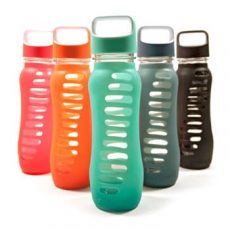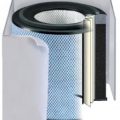
Written by Maia, President
If you missed our Twitter party the other night (the one on toxins in your water with Dr. Alan Greene), here is the complete transcript.
Need it even simpler? Here are the big takeaways:
1. Tap water–even in areas known for “good” water–often contains a range of contaminants.
These might include heavy metals, pesticides, pharmaceuticals, hormones, and of course chlorine and fluoride. The pesticide Atrazine is of particular concern, and can be found in the tap water of 30 million Americans. Animals who ate identical diets and burned the same amount of calories weighed 10 percent more if they had Atrazine in their water!
2. Chlorine is bad stuff.
Chlorine is added to municipal water to kill microorganisms (which is good). But it’s linked to everything from hormone disruption to cancer. It should be filtered out after it’s done its job. Chlorine also is inhaled as steam in the shower, you should get filters for your showerheads, too.
3. Fluoride belongs in toothpaste, not water.
A recent Harvard study showed that fluoride exposure can cause as much as a 7-point drop in IQ. Fluoride stops tooth decay but is best in toothpaste and then spit out. (Special filters will take out fluoride.)
 4. Bottled water is often worse than tap water.
4. Bottled water is often worse than tap water.
Bottled water is usually stored in plastic, which we know leaches toxins. While tap water is frequently tested and treated, and you can find info about your local water online, this isn’t true for bottled water, and most isn’t treated with advanced filtration. If you must by bottled water, Penta Ultra Purified Water scores high marks from the Environmental Working Group.
5. Pitcher filters don’t do much.
Plastic pitcher-style filters don’t do much besides improve the taste and appearance of water. Pitchers also means your water sits in plastic, and BPA-free doesn’t mean anything, (in fact it can be worse than BPA!).
6. The best filter choice is a carbon filter.
Here are the ones we like. You can get them in over-counter or under-counter configurations. We recommend the three-filter model to deal with fluoride, for the reasons mentioned above.
 7. Drink from glass or stainless steel.
7. Drink from glass or stainless steel.
Don’t put your water, or the water you give your kids, in plastic. We love these glass water bottles, and kids should use stainless steel sippy cups.
Since I believe filtering your water is one of the very most important things you can do to reduce your family’s exposure to toxins, I have decided to put the filters we sell on our site at 10% off until Sunday at midnight EST. Just use code GIMMECLEANWATER at checkout.
Stay sane,
If you liked this post, sign up for our newsletter to be alerted when we publish new content like this!


 4. Bottled water is often worse than tap water.
4. Bottled water is often worse than tap water.







Arlo says
I’m in the market for new filters. How do hour filters compare to others on the marker that are similar, ie aquasana? Any thoughts of producing a whole house filter?
john says
We believe the filters we sell on this site are the best on the market–they are the ones we use ourselves. And we can also help you get a whole house filter–please email store@gimmethegoodstuff.org for more information. Sorry for our delayed response!
Denise says
I think your website has some good information, but the comment that Fluoride belongs in toothpaste, not water is not backed by any scientific evidence. There is some more recent information on this topic, including a statement released by the original authors here:
http://cdn1.sph.harvard.edu/wp-content/uploads/sites/21/2012/07/Media-Statement_Fluoride-9-12-12-Revised2.pdf
There is also a more recent study on the topic here:
http://authors.elsevier.com/a/1QC~o3AqrTgP2H
Here is a detailed analysis of the article that is a little more easy to understand as well:
http://scienceofmom.com/2012/08/15/will-fluoridated-water-lower-my-childs-iq/
In short, the original 2012 study cannot be used to draw any conclusions regarding fluoride levels in the US public water supply system and IQ. The main reason is that the definition of “high” levels in the study were those found in naturally occurring ground water in China, which far exceeded any level found in our public water supply system. Also, the study was deficient in a number of areas (noted by the authors), one of the most significant being that they found no causation between fluoride and IQ levels – just a correlation. This means that anything could have been correlated with low IQ– like having brown hair, for example.
I just want your readers to be aware of this also, and to assuage any fears they may have regarding the fluoride levels in our public water supply system.
Maia James says
Thanks for your comments, Denise. I am always happy to read non-alarmist information. Off to check out the links you provided right now!
Jeanette Pincus says
Hi! Gimme the good stuff has changed my life for the better! I read it for everything and shop here too. Thanks for all you do! And I thought Dr. Oz shoudl have let you speak more hahahahaa! But my question is do you know of a water testing kit or something I can use to see if my current under the sink Cullin water filter is good enough for our drinking water? I guess I wouldn’t even know how to read the results if I had one but just trying not to uproot a perfectly good system to get the 3 filter one that you recommend, if in fact the Cullin is doing it’s job. Any thoughts? Thanks!
Maia James says
Hi Jeanette,
Thanks for watching me on Dr. Oz:). I passed your question on to our resident expert, John. Here’s what he says:
Water filter systems can be confusing. Your Culligan system might be fine…but that depends on the exact filter configuration you have, and what you are looking to remove from your water. Beyond filtering for the usual stuff (harmful organisms, common toxins etc.), we like to make sure we remove as much chlorine/chloramine and fluoride as possible. If you live in a rural farming area and have well or spring water, you may need to filter for particular pesticides and forget about chlorine or fluoride (because there is none).
Also, it is very important to make sure that you change the filter cartridges annually, (at least). There is usually no definitive way to know when your filters are saturated and no longer able to do what you want them to do. Unless you use a lot of water, your filters should last about a year. Many state university extension services will test your water for free or very inexpensively, and I would check with Culligan to see exactly that is being filtered from your water.
As much as we would love to sell you a water filtration system, your Culligan system will very likely do a pretty good job if you have the correct filters for your situation.
If after you speak with them you, you don’t feel you have the right system, let us know!
Thanks for the kind words about our site and mission.
Regards,
John
Kelly says
Was there recently a blog or write done about Pitcher filters and what the best ones are? Im looking to replace my plastic water pitcher filter before installing actual filters.
Maia James says
I mentioned the pitcher I use in an email. It’s this one: http://amzn.to/2ccSxcD
Jane says
Thank you Maia for this list of toxins in water. And for the bonus of explaining each of them. You’re awesome! I’ve learned a lot in reading your blog.